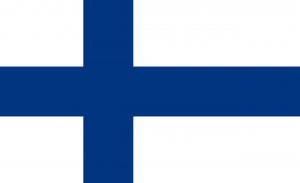Language/Finnish/Grammar/Forming-Questions
| ◀️ Hobbies and Leisure — Previous Lesson | Next Lesson — Negation ▶️ |
As a Finnish language teacher with over 20 years of experience, I am excited to help you learn how to form questions in Finnish. In this lesson, we will cover yes-no questions and questions with question words. Asking questions is an important part of communication, and it will greatly improve your language skills. Let's get started!
Consider exploring these related pages after completing this lesson: Alphabet and Pronunciation & How to Use Have.
Yes-No Questions
Yes-no questions are questions that can be answered with a simple yes or no. In Finnish, these questions are formed by using the verb in the present tense and adding the question particle "-ko" or "-kö" at the end of the sentence. The particle "-ko" is used with words that end in any consonant except for "k", "p", "t", "s", "h", and "n". The particle "-kö" is used with words that end in "k", "p", "t", "s", "h", and "n".
Let's look at some examples of yes-no questions in Finnish:
| Finnish | Pronunciation | English |
|---|---|---|
| Oletko sinä suomalainen? | Oh-leht-koh si-nä soo-mah-lai-nen? | Are you Finnish? |
| Onko hän opettaja? | Ohn-koh hän oh-peh-tah-ya? | Is he/she a teacher? |
| Puhutko sinä englantia? | Poo-hut-koh si-nä eng-lan-ti-ah? | Do you speak English? |
| Juotko sinä kahvia? | Jooht-koh si-nä kah-vi-ah? | Do you drink coffee? |
Notice that in Finnish, the question particle "-ko" or "-kö" is always at the end of the sentence, even after the subject or object. Also, in Finnish, the verb comes first in the sentence and the subject comes after it.
Let's practice forming some yes-no questions. Try to form your own using the following words:
- juoda (to drink)
- syödä (to eat)
- pelata (to play)
- olla (to be)
Questions with Question Words
Questions with question words are formed by using a question word such as "mitä" (what), "kuka" (who), "mikä" (which), "milloin" (when), "missä" (where), or "miksi" (why).
The order of words in Finnish questions with question words is the same as in declarative sentences, but the question word is placed at the beginning of the sentence followed by the verb.
For example:
| Finnish | Pronunciation | English |
|---|---|---|
| Mitä sinä teet? | Mit-ä si-nä teh-t? | What are you doing? |
| Milloin sinä tulet? | Mil-loin si-nä tu-let? | When are you coming? |
| Missä sinä asut? | Mis-sä si-nä ah-sut? | Where do you live? |
Let's practice forming some questions with question words. Try to form your own using the following question words:
- miksi (why)
- kuka (who)
- miten (how)
- mihin (where)
- milloin (when)
Key Takeaways
In summary, there are two types of questions in Finnish: yes-no questions and questions with question words. Yes-no questions are formed by using the present tense of the verb and adding the question particle "-ko" or "-kö" at the end of the sentence. Questions with question words are formed by placing the question word at the beginning of the sentence followed by the verb.
Remember that to improve your language skills, it is important to practice forming questions and to use them in conversations with native speakers. Keep up the good work, and see you in the next lesson!
Other Lessons
- Pronouns
- Finnish Verb Tenses
- Sami and Karelian Languages
- Regional Finnish Dialects
- Give your Opinion
- Finnish Verbs: Past Tense
- Past Participle in Finnish
- Alphabet and Pronunciation
- Adjectives
- Prepositions
Sources
- Finnish grammar - Wikipedia
- Making Finnish Questions | Finnish language, Learn finnish, Finnish ...
- Finnish Grammar Beginner's Guide (even if you hate grammar)
| ◀️ Hobbies and Leisure — Previous Lesson | Next Lesson — Negation ▶️ |

